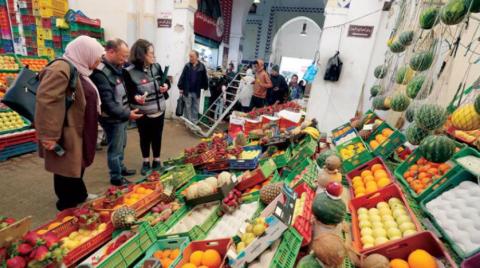
More than half of the Tunisians complain about the high cost of living and the deteriorating economic condition in the country, according to a survey published on Wednesday.
The Mourakiboun group, which specializes in elections, carried out the survey. It covered 1,000 voters and was held between Oct.14-24, around two months after the referendum on the new constitution on July 25.
The survey revealed that 81 percent of the citizens surveyed prefer the time before the year 2011 which witnessed the fall of the late Zine El Abidine Ben Ali’s regime in the wake of a popular revolution.
On July 25, 2021, Tunisian President Kais Saied imposed extraordinary measures, dismissed parliament, and annulled the constitution of 2014 and other constitutional bodies.
An 81 percent of the surveyed Tunisians said that they preferred the pre-2011 period while the following period until July 2021 came second with 12 percent.
Ten percent of the surveyed preferred the period after July 2021.
Up to 78 percent of the Tunisians revealed that they see the country on the wrong track while 12 percent see that it is on the right path compared to 10 percent “who don’t know”.
In this context, 55 percent of the surveyed considered that the main problem in Tunisia is “the high cost of living” while 35 percent saw the “deterioration of the economy” as the main problem.
The uprising in the Tunisian cities against Ben Ali in the last months of 2010 demanded more job opportunities and development projects.
Although the political transition since 2011 has allowed more freedom of speech, this wasn't accompanied by effective economic reforms.
Tunisia is suffering from a severe financial crisis amid the stumbling of a $1.9 billion loan from the International Monetary Fund (IMF).
The opposition accuses Saied of laying the foundation for individual rule while the latter reiterates that he wants to correct the path of revolution and fight corruption, knowing that he surprisingly won a more than 70 percent majority in the presidential elections in 2019.












